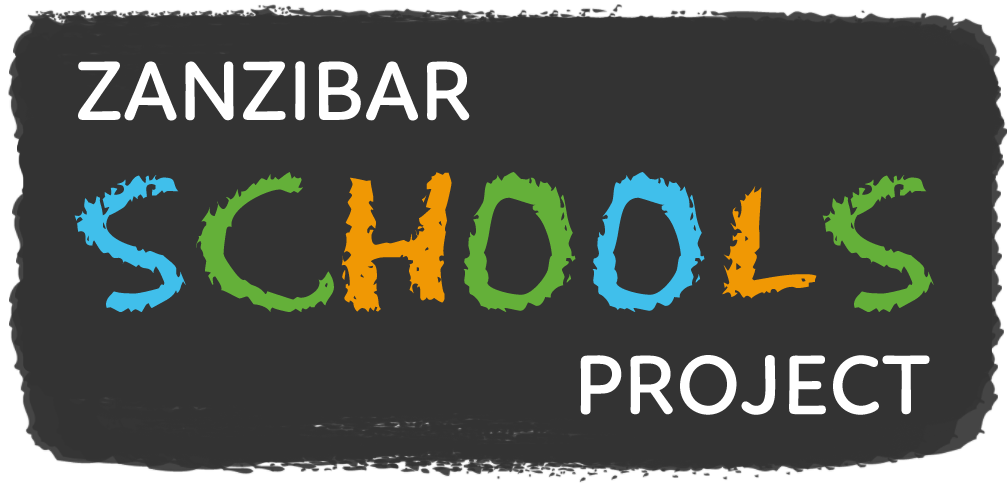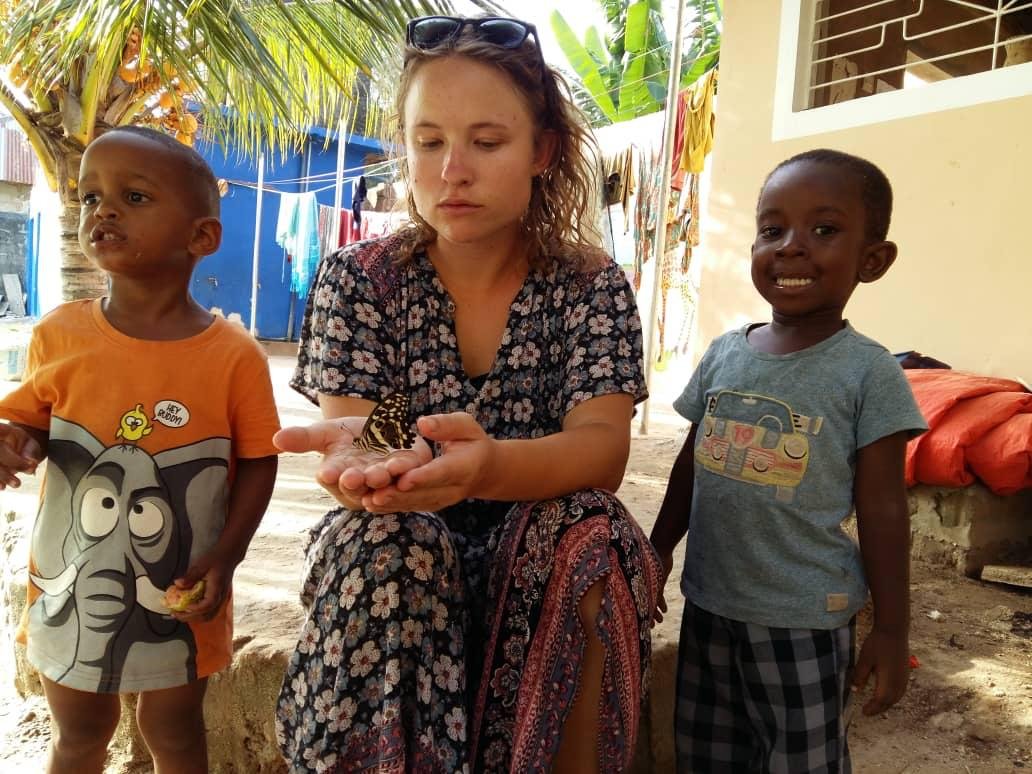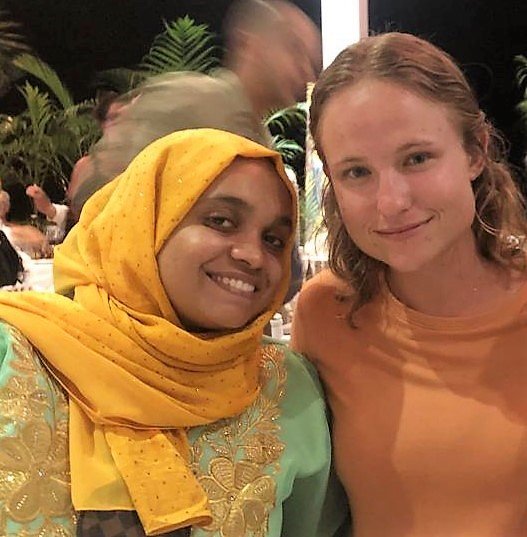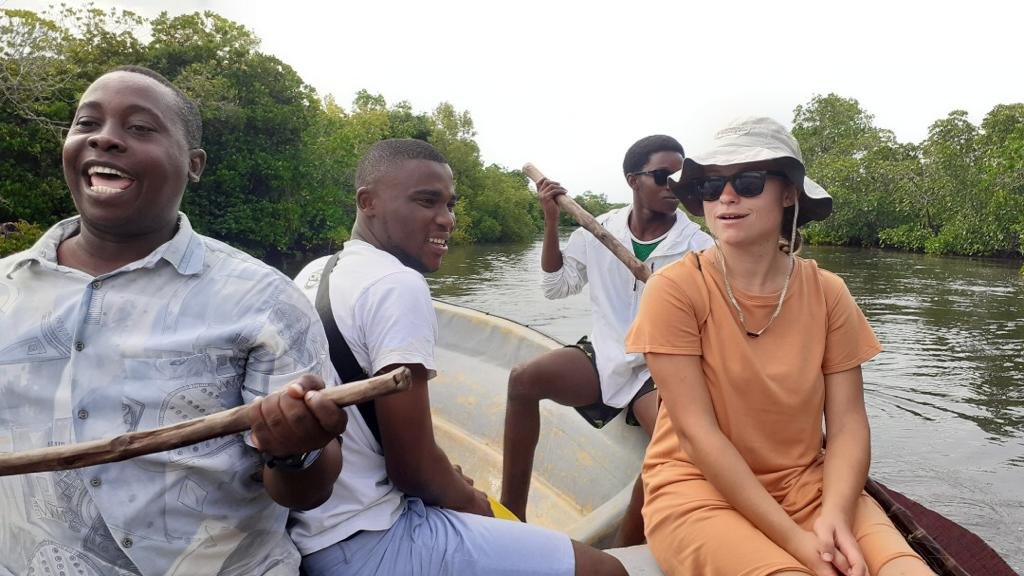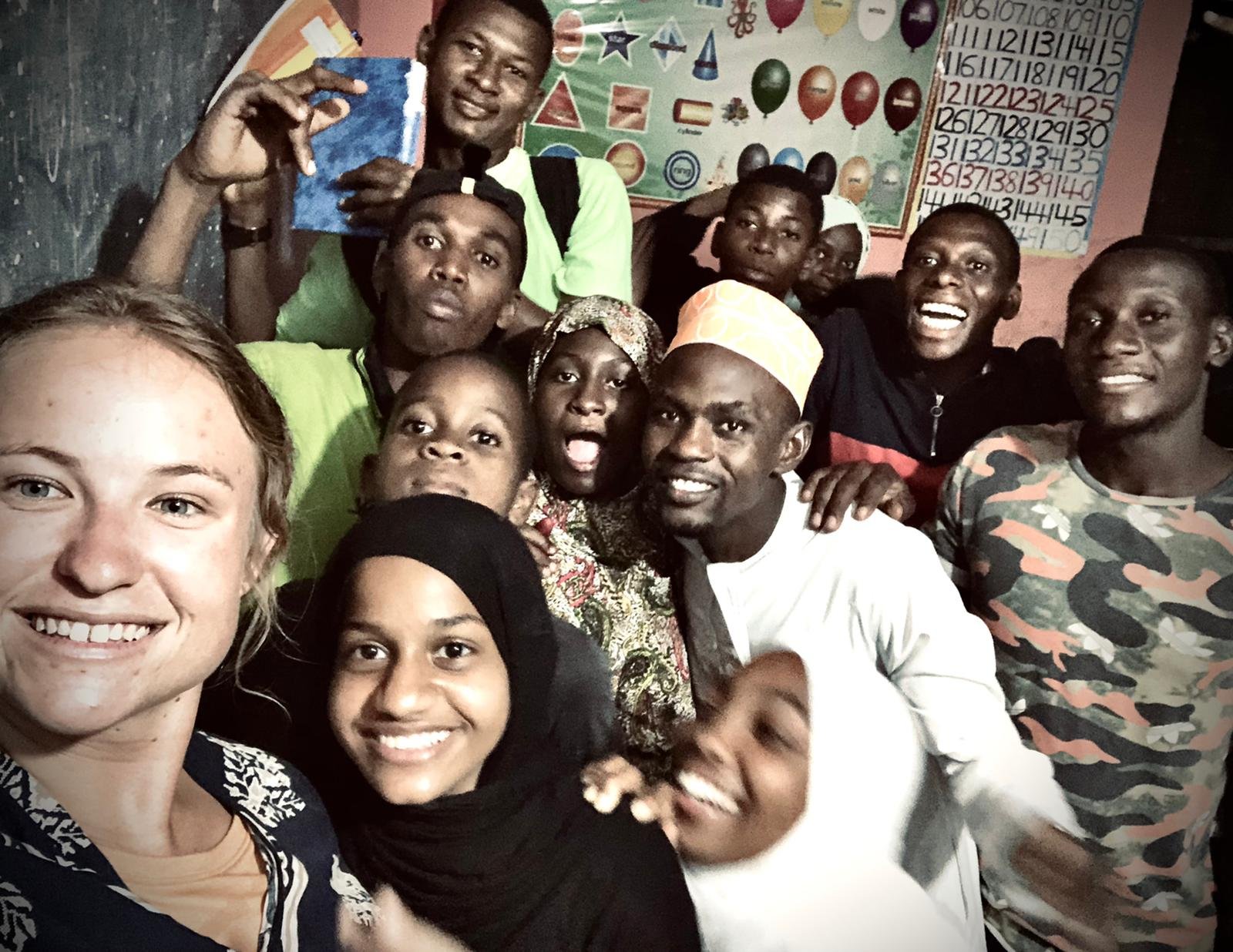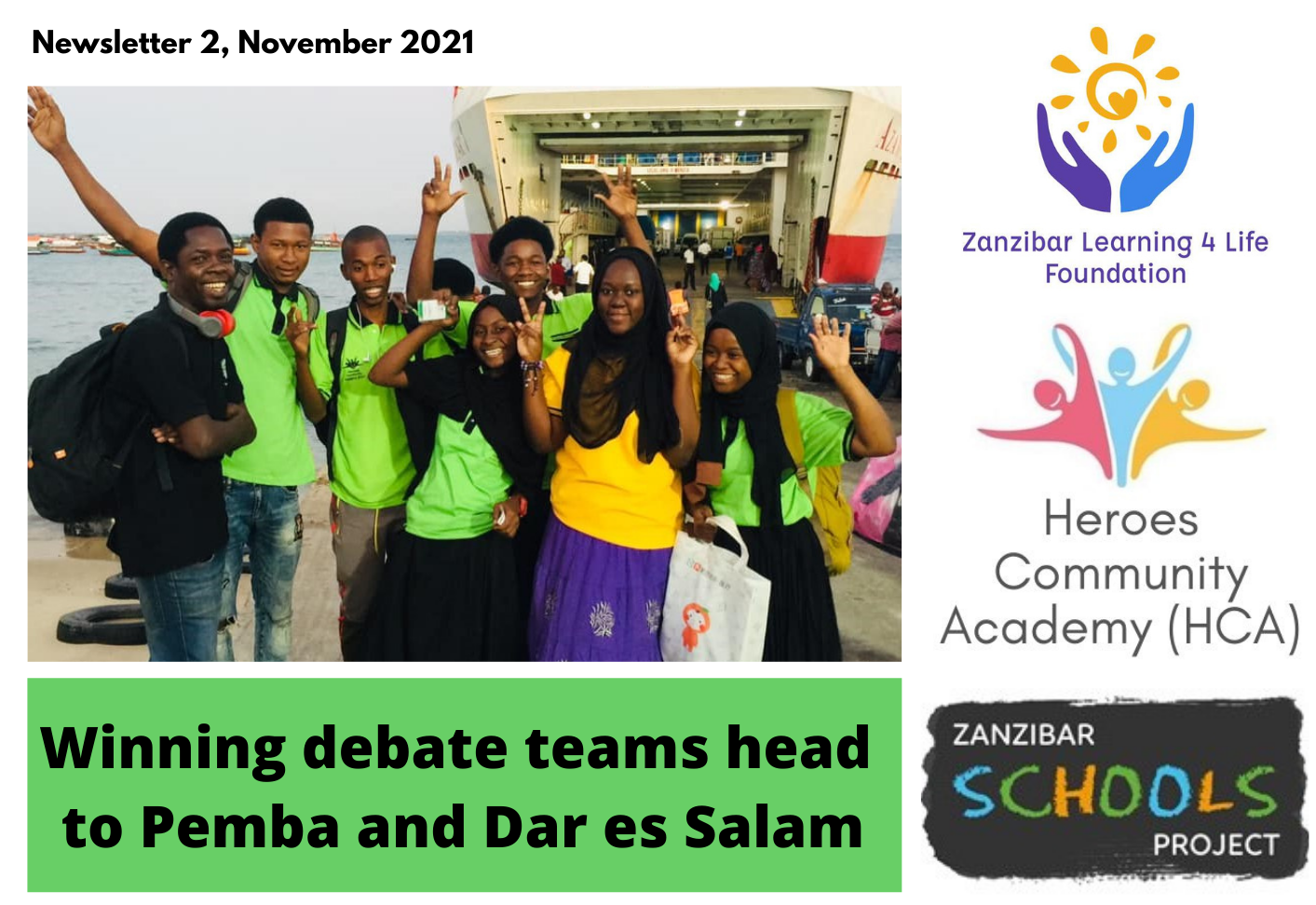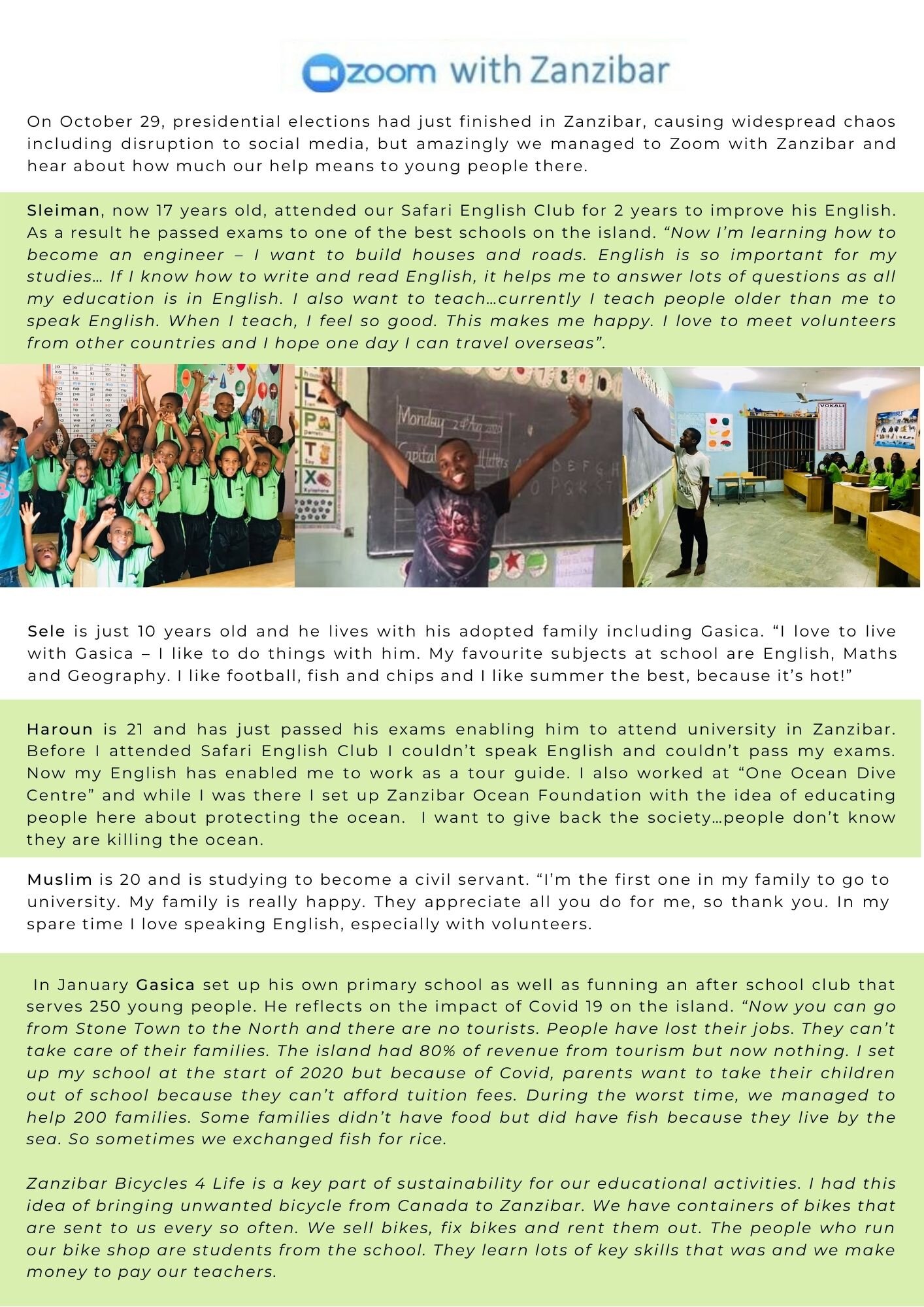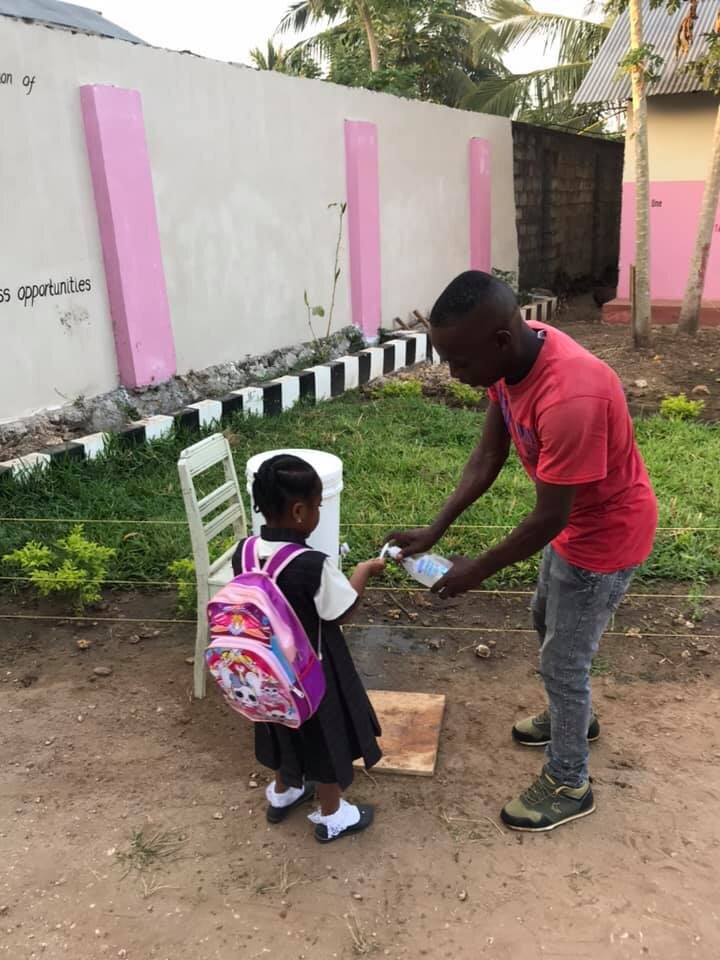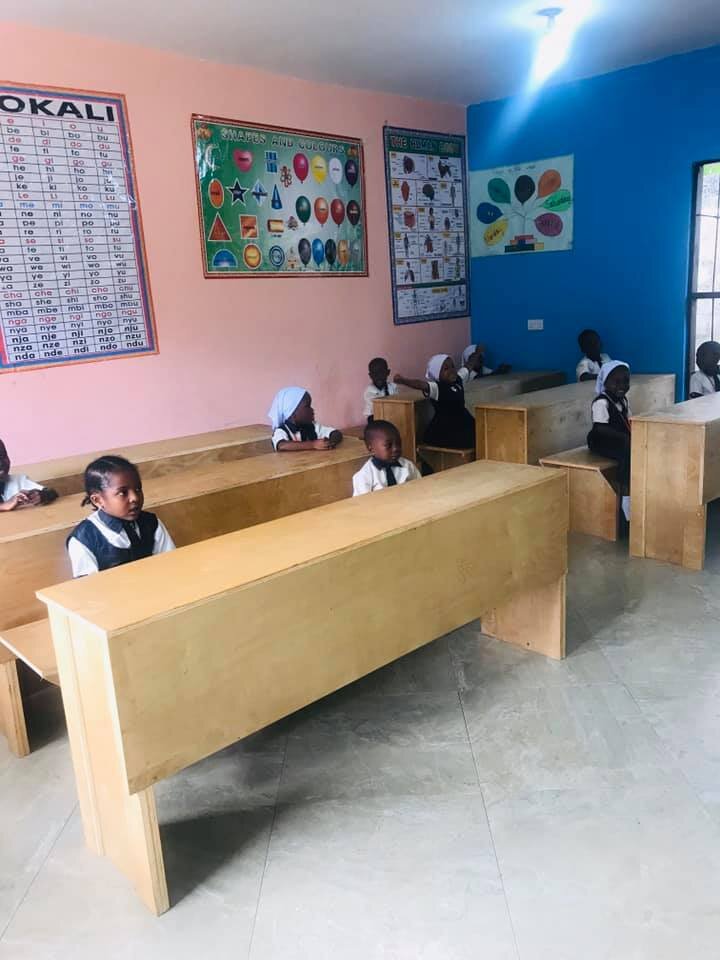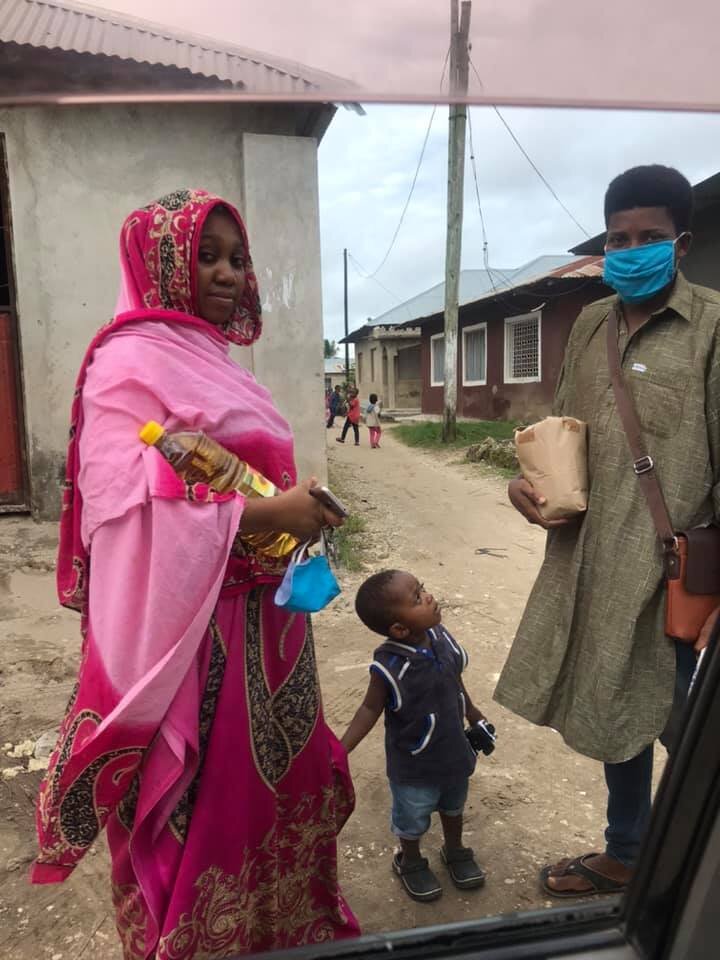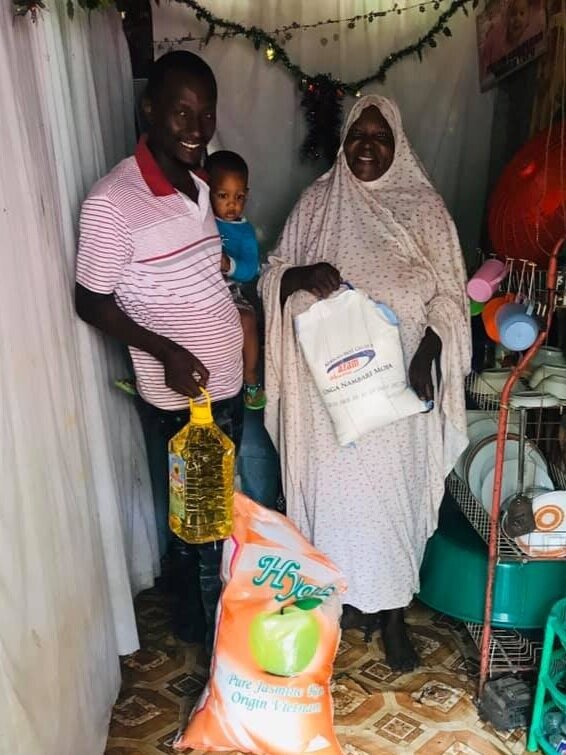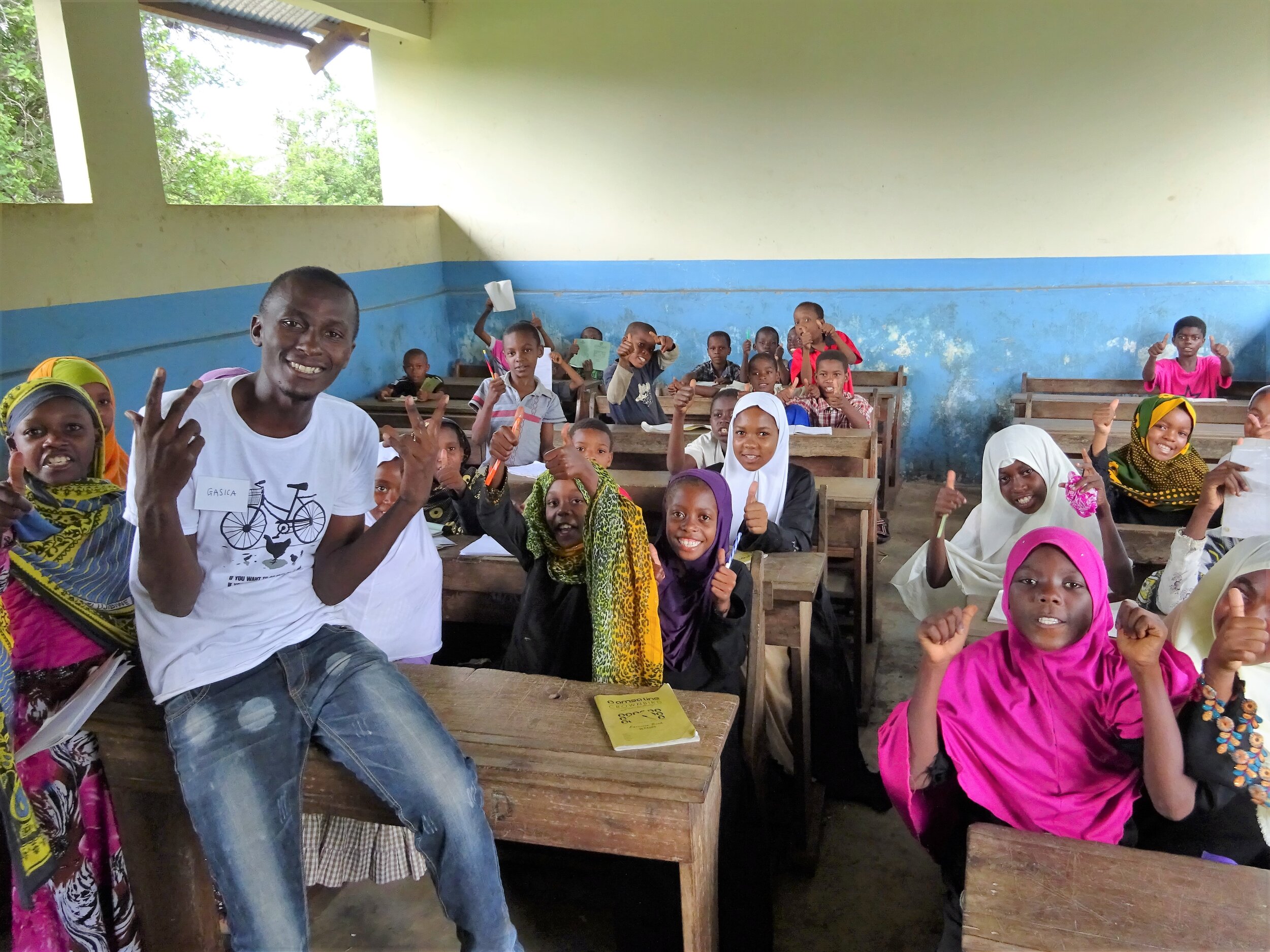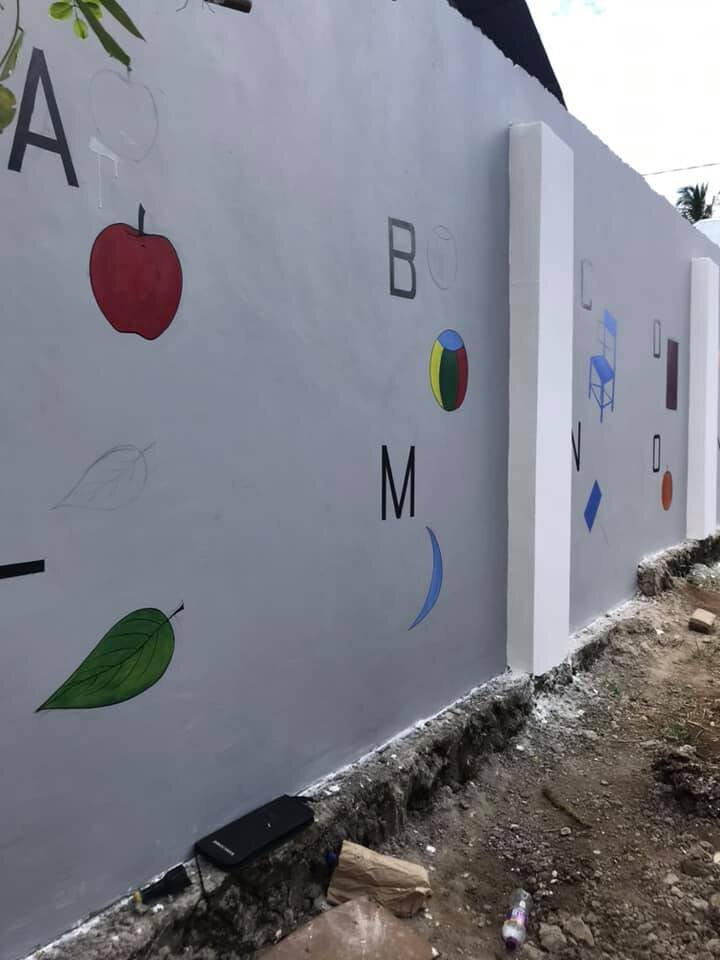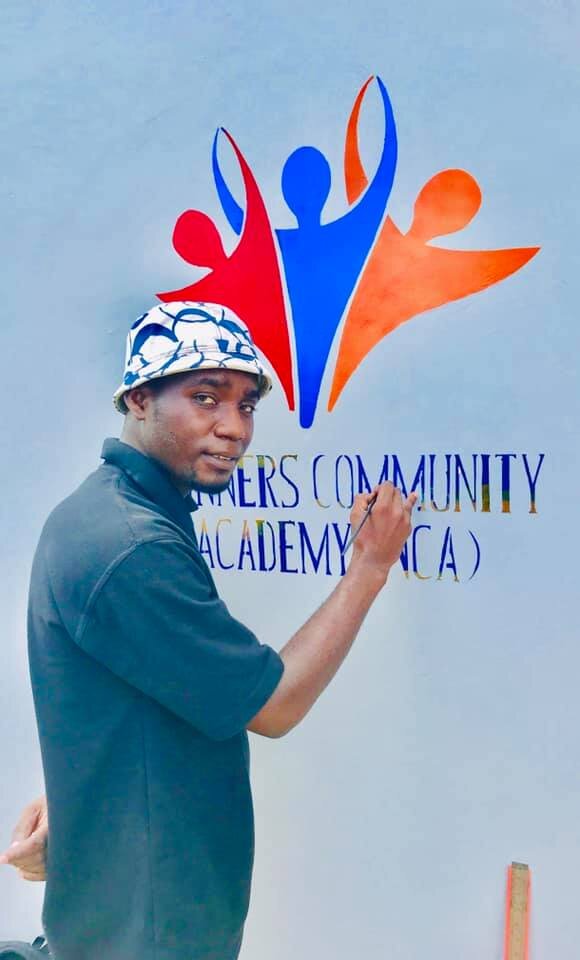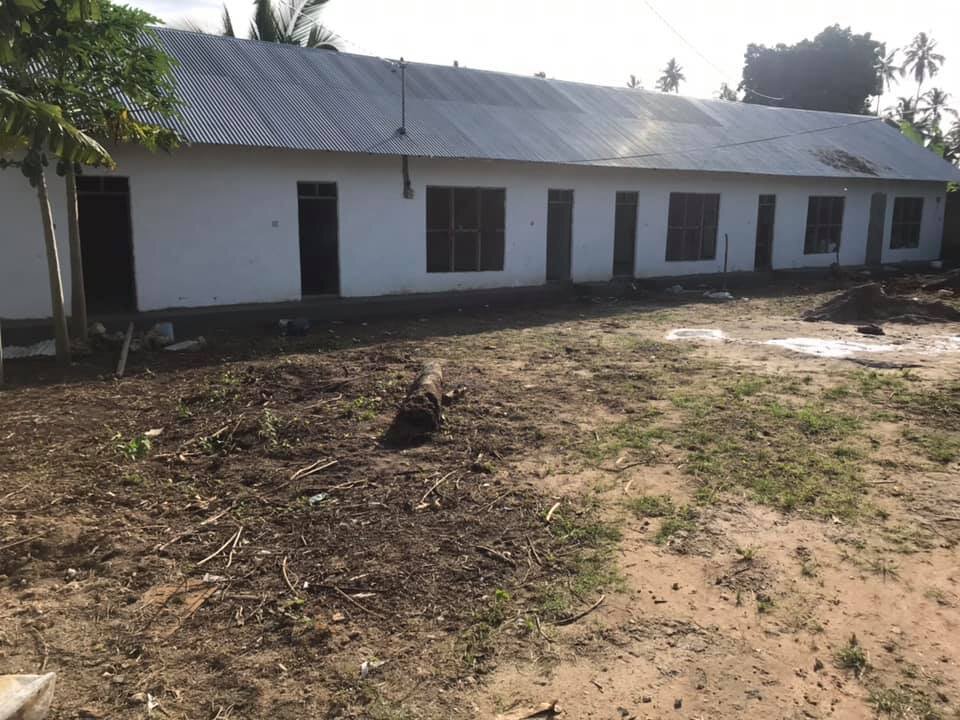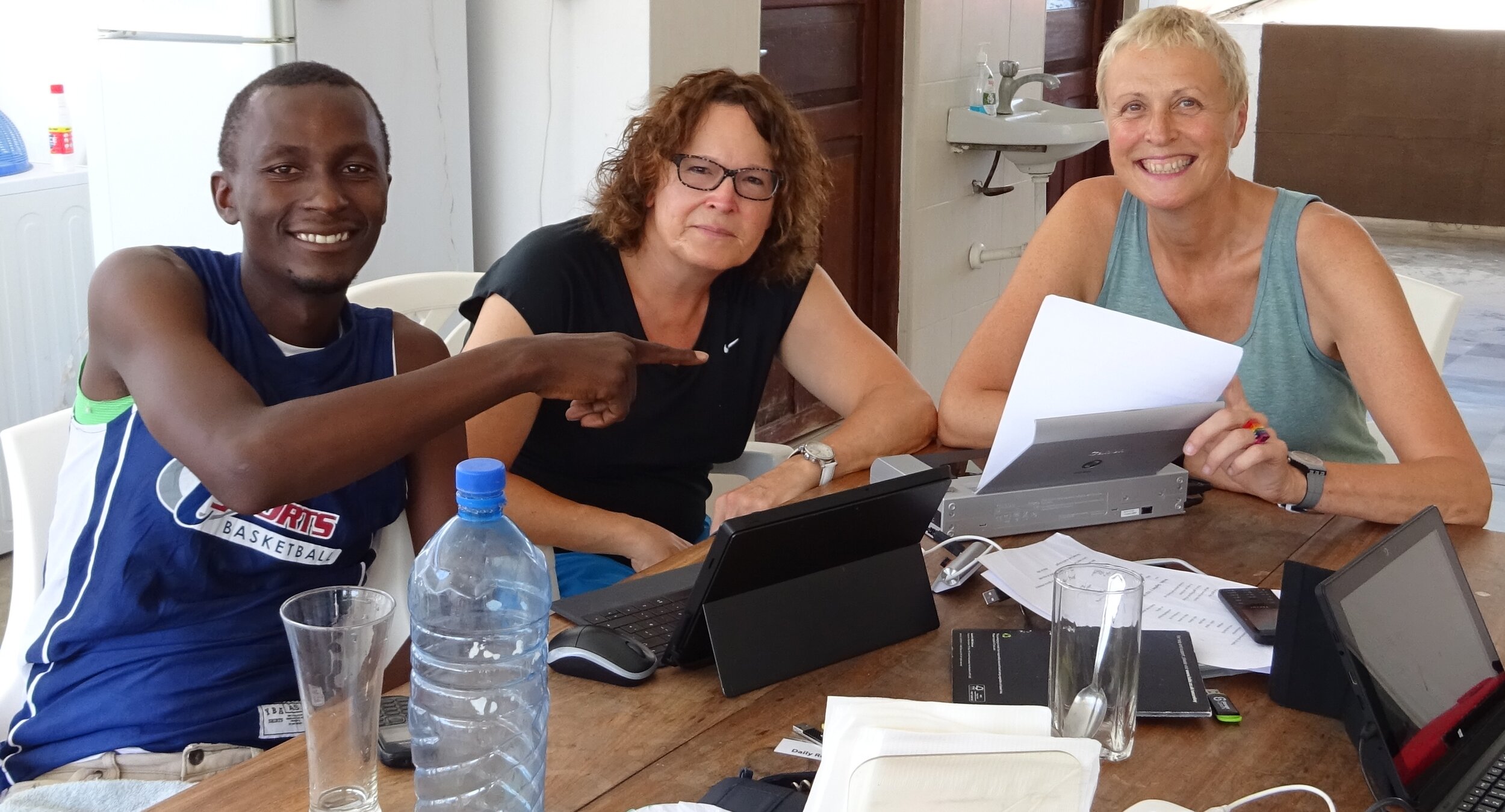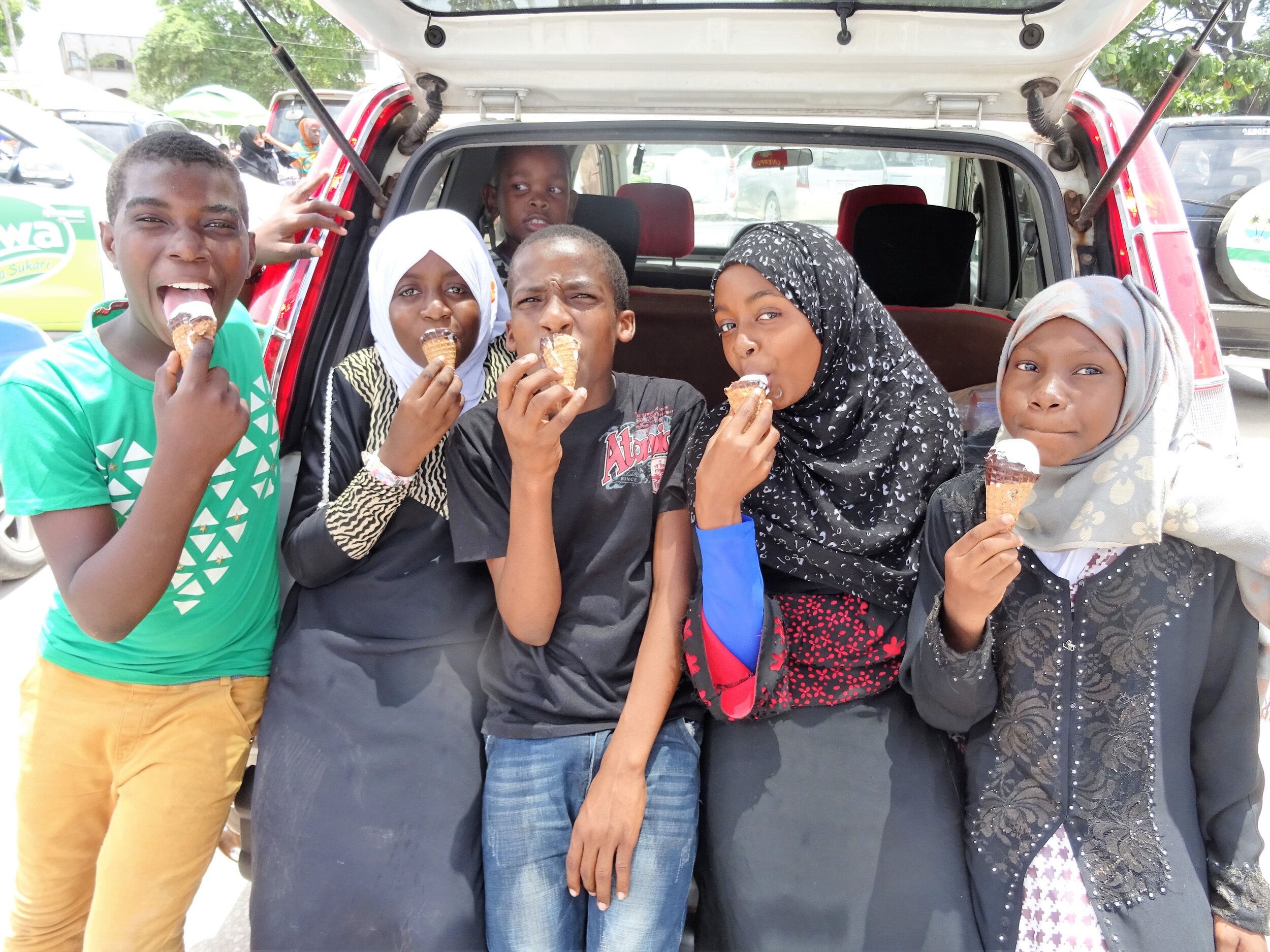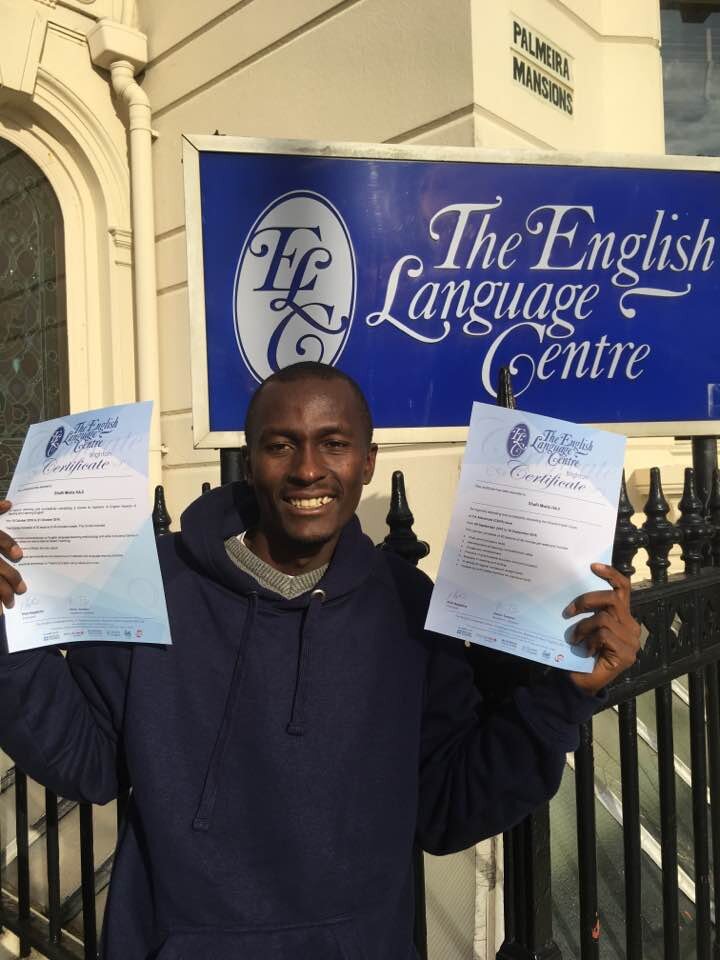Find out more Ryota’s visit to Zanzibar
Volunteer stories
For the past 6 years we've been helping people from the UK, Canada, the USA, the Netherlands and Denmark to volunteer in Zanzibar. You might like to read their stories here and discover some of the common themes about what the volunteers enjoyed in Zanzibar, what they found frustrating and what they learnt about themselves along the way! Click on the image below to find out more.
Making the most of every opportunity
Making a diffference....
Claudia has just spent 2 months in Zanzibar. It was the first time that she'd travelled to Africa and she found the experience rewarding and life-changing. Claudia stayed at the volunteer accommodation at Heroes Community Academy, which is situated in an area where it's very rare to find a foreigner. Here Claudia answers some questions about her experience.
How did you hear about ZL4LF? A trusted contact who'd visited ZL4LF told me about the opportunity. I was really pleased not to travel through a commercial volunteer program as it made the experience more personal.
What did you enjoy about the experience? It was great to apply my knowledge of educational management in a place where it was so appreciated. Although I went with the intention of helping others, the insights I gained will help me in the future too. I enjoyed being around people who wanted to explore ideas with me and see how educational theories could work in such a different environment. I also found it particularly rewarding when students remembered what I'd taught them.
What did you enjoy least about being in Zanzibar? Where I stayed was a long way to the beach and the sightseeing highlights.
What did you get from the experience/how has it changed you? I've learnt that you need to strike out and push your boundaries to get what you want in life. What I've seen in my life already is 100 times more that what some people in Zanzibar can imagine and probably will ever experience. So, don't boast and remain humble in conversations and interactions with others.
What would you say to other people who are considering volunteering in Zanzibar? The heat will change you both physically and mentally. So take it easy and cool off/ drink even more water than usual. Go out and explore on your own or with another local or friend from town. If you only stay at the school, you won't discover the many aspects of Zanzibar culture. And remember, it's island life, so slow down and go with the flow!
My vision....
Suleiman's story
Planning our futures....
Debate winners go to Pemba
Debating gives students a great opportunity to practice speaking English. The students at ZL4LF love these competitions…but the most recent competitions had fantastic prizes - a trip to Pemba or to Dar es Salam! This was so motivational for those who took part… read more in our newsletter
Oskar Berelowitz - Volunteering in the time of Covid
Find out about Oskar’s experience of volunteering in Zanzibar at the start of 2021
Read moreA new bus in Zanzibar
https://www.youtube.com/watch?v=h3lQ1Jirrl8
Interview with BBC Radio Sussex
Meet the Heroes
We may not be able to travel to Zanzibar, but we can still meet the young people who want to make the best of their lives
Our newsletter
Oskar Berelowitz - Volunteering in the time of Covid
In the midst of such a strange and difficult period for many, I feel blessed to have an opportunity like this. I was introduced to Gasica, the man spearheading these operations, and the director of Zanzibar Learning for Life (ZL4L) and Heroes Community Academy (HCA). His passion was transparent during our phone conversations and very soon I knew I wanted to be a part of his vision.
I landed in Zanzibar and immediately sensed its people had a soothing energy. Dazed in the massive heat, I was soon calmed through a series of ‘Hakuna Matata’s’ and Gasica’s warm welcome. The vibe of generosity and kindness has been a constant throughout my stay and it has really helped me to settle in. I live in the Zanzibar Learning for Life (ZL4LF) institution with some young natives who have been my personal tour guides around Zanzibar. It is clear that the Zanzibar people view themselves as an interconnected family. The value of family is a predominant feature of life here and everyone has helped in making me feel part of it.
I noticed a difference in the attitude to learning once I’d started teaching at Zanzibar Learning for Life. From my own experience of school, I remember students could be a challenge for teachers to control due to poor attitudes. This has been far from my experience of classroom behaviour here. Instead, I found that students entered lessons with refreshing enthusiasm. This has made teaching far easier and more enjoyable for me, but more importantly, it taught me a lesson along the way. I feel as though ones education is treated as an absolute privilege out here and it taught me to appreciate and be grateful for access to my own academic studies. I perhaps overlooked these opportunities in the past, but this experience has allowed me to take a renewed, introspective view of myself.
I quickly became accustomed to hearing “Mambo Mzungu” from passing Zanzibaris. A colleague explained that the term of address refers to Caucasian tourists who come to visit or travel the island. I later read that its literal translation is ‘wanderer’, and it is widely adopted even among locals as a term of respect.
The kids at HCA seem particularly curious of me, and particularly of my hair. Just recently I was planning to get a haircut here but reconsidered when I thought the pupils would be upset at this decision. Everyone inside and outside the classroom has a universal fascination with ‘wanderers’ and the vibes are always of love.
The collective achievements of Gasica and the entire HCA and ZL4LF family are remarkable. As HCA embarks on its second academic year, there are several new project proposals in the pipeline. I’ve been particularly taken by the determination of Gasica to not only sustain this fantastic project, but to build and expand on it. For instance, we’re currently discussing the possibility of creating our own allotment space at both institutions. Remaining ecologically sound is an ethic Gasica and I want to foster and we believe this new project will be beneficial to our sustainable goals and vision. New ideas bounce around every day, and it’s been a pleasure to be involved in these exciting developments.
Zoom with Zanzibar by Ann Dieckmann
The impact of Covid on our projects in Zanzibar
We hear so much about the devastating impact of Covid-19 in the UK, Europe and America but there’s very little in the news about the impact in Africa. It’s as if our imaginations can’t cope with any more sadness. From what we’ve learned from our friends in Zanzibar, the situation is pretty bad. The President of Tanzania has some crazy ideas on disease prevention and the government in Zanzibar is probably under-reporting the incidence of Covid. However, the incidence of infection and death appears to have been relatively low in spite of the lack of precautions taken by local people and the haphazard approach to lockdown. Our contacts at the Rotary Club of Zanzibar, Stone Town, say that they don’t know of any incidence of Covid amongst locals or ex pats. Due to short life expectancy there aren’t many people over 60 combined with a general acceptance of death as a fact of life (people just die and the cause is not important) and even the high temperatures may have minimised the impact of Covid. But what is hurting is the lack of tourist and the money that usually filters through the island. About 80% of Zanzibar’s foreign income earnings come from tourism..
Gasica reports that at Zanzibar Learning 4 Life Foundation most of the donations came from Europe and North America and former students who are employed in tourism (eg as tour guides) and tourists who visited ZL4LF projects. Those donations have dried up because everyone has been hit by Coronovirus and are not able support our projects.
ZL4LF was reopened last week and due to limited with the space, the teachers are now working 7 days a week so that the classes can be smaller. At the associated school, the Winners Community Academy (WCA), families are not able to pay school fees which means the teachers can’t be paid their full salary.
Gasica’s time and attention was channeled into helping keep his community fed. He’s been able to raise funds to feed more than 200 families within the Fuoni community Fuoni and more than 100 from Magomeni, Mgeni Haji, Uzini and Unguja Ukuu. He says “We are so proud of what we have achieved and how many people we have helped.”
WCA is now back and the teachers have started to help the children understand more about Coronavirus, how it spreads and how to fight it so they are aware of what is been happening in the world and how to keep safe. Gasica says that they were very fortunate to have made the desks when the schools were shut because it’s made it much easier to keep social distance in the classroom.
Zanzibar Schools Project is delighted that the young people who were part of our original teaching programme are doing well. We are now funding 4 students in higher education as well as helping 5 students who are still in school. Salama write this update about her course in business administration. “I’m develop my skills and learning how to become a professional, learning how to lead my best life, motivate myself and others. I'm enjoying in my studies and hope to get a job in the private or public sector. My parents are so proud of me and want to thank Safari English Clubs for building my dreams and motivating me to work hard. I’m the first person in my family to go to university. I promise to teach others in my village computer skills when I graduate in 2021 because I have something I need to teach others.”
Thanks to Gasica, Salama and Safari Blue in putting together this report. Also thanks to Ipswich Rotary Club for raising funds to help with Gasica’s feeding programme as well as the Rotary Club of Zanzibar, Stone Town, who contributed $16,000 to combat Covid, the highest of any Rotary Club in East Africa. The funds were mainly spent on wash-stations around the island and PPE.
Our fund-raising has also suffered during this period as we haven’t been able to run our usual fund-raising events. We have just set up a new fund-raising page and for the month of August all donations will go to Gasica to help him pay salaries and provide supplies for children at his new school.
https://www.kindlink.com/fundraising/Brighton-Hove-Soiree-Rotary-Settlement/3167
From Chicken Farm to Winners Community Academy
“You can change your life for the better and you can learn from every experience and setback.” That’s the view of Gasica, the young teacher in Zanzibar who is about to see his dream of opening a primary school become a reality. In January 2020 The Winners Community Academy opens its doors to 30 children aged up to 6 years old. Since 2015, Gasica’s organisation Zanzibar Learning 4 Life Foundation (ZL4LF) has been running after school classes in English, Maths and Computer studies as well as offering young people apprenticeships in bicycle repair, micro businesses and chicken farming. Some of those businesses some have been more successful than others. Zanzibar Bicycles 4 Life brings in a steady income and has given more than 60 students the opportunity to learn bicycle repair skills. They recently launched Sully Mobile Service, which imports and reconditions mobile phones for resale in Zanzibar.
In 2015 ZL4LF set up a chicken farm with the help of the Daraja Foundation (Canada) on land near the main road that runs across the island, between Fuoni and Unguja Ukuu. But in spite of their assistance and that of CoCo’s Foundation (from the UK) ZL4LF encountered insurmountable setbacks in chicken farming. The main problem is the prevalence of Newcastle disease which is an acute, rapidly spreading viral disease of the respiratory system that causes high mortality, and impedes egg laying in mild cases. Although there’s a vaccine, it must be repeated every two months and it isn’t always effective. There are also many other diseases that affect local chickens so the decision was taken to shut the chicken farm.
So Gasica decided to learn from the setback and to refocus on the core offering of education and convert the chicken farm buildings into classrooms. Due to an excellent reputation in teaching English, Maths and Computers, there’s demand from parents for ZL4LF to provide nursery and primary education. Gasica is grateful to Rotary Clubs in the UK and Zanzibar as well as the Goodall Foundation, for supporting his further education in the UK and in Tanzania. These experiences and qualifications enabled him to secure a provisional licence from the Zanzibar Department of Education to open the school.
The Winners Community Academy has support from schools in Canada, Australia and Germany to provide ongoing funding which will enable them to offer scholarships to deserving children. And local parents are prepared to pay small fees to help cover our teaching costs.
School Objectives
The main objective is to improve the quality and effectiveness of primary education offering in this area of Zanzibar. ZL4LF hopes to raise the quality of education so that students will be able to develop their life skills and realize their potential as citizens. The organisation is also dedicated to improving the education and training of teachers. The school will give equal opportunities to girls and vulnerable groups such as children with special educational needs and will offer a safe and child friendly school environment that’s free from discrimination, abuse and harassment.
School students and curriculum
The school will start with 50 students (25 students per class). Each year there will be an intake of at least 50 students until all year groups are full at which point 25 students will join each year. Ultimately the school will take children up to the final year of primary school (aged 13). The objective is to enrol 150 children in 6 classes from Kindergarten to Standard VI (end of Primary school). Better nursery and primary education will improve children’s chances at secondary school level and subsequently enable some to enter tertiary education. The core offering of the school will be the government proscribed primary school curriculum which includes English, Maths, Geography, Science, ICT, History (all taught in English), Kiswahili, Religion (taught in Kiswahili) and Arabic (taught in Arabic). In addition, the school will ensure the children; especially girls have the opportunity to participate in sports such as swimming, football and netball.
Teaching staff
The academy aims to be well run with adequate funding of teacher salaries and professional development. The teachers will be well-trained in modern teaching methods and will be encouraged to use them. The school is only recruiting teachers who are Upper Intermediate in English and they will be expected to commit to 1.5 hours of English language lessons per week to improve their language skills. All teachers will be qualified according to Zanzibar Department of Education standards. The first 4 recruits are at the top end of the skill scale and offer expertise in English and Maths. As a community school the organisation is permitted to supplement well-qualified local teachers with International volunteers to enhance the curriculum, for example in offering art, music and drama as well as providing additional opportunity to practice spoken English.
Long term plans
The Winners Community Academy is planning to develop a sister school in Unguja Ukuu to serve the local community at primary and secondary level. Plans for this site were delayed due to problems with establishing land ownership, but this has now been resolved. It’s anticipate that the first phase of this development will start in 2021 and will include accommodation for volunteers and some of the money generated by this will help support the schools. Long term both schools will encourage small business development within the immediate community contributing towards transforming Fuoni and its neighbourhood into a society able to meet the challenges of the changing environment. The local community will benefit by having access to equipment and computers. The school has funding from “Tools for Reliance” (a UK charity) to purchase equipment (https://www.twam.uk) and already has 4 sewing machines that are used by young women who are starting to earn a living making clothes and selling them in the community. The school will provide education and support to these young business people with the aim of launching their careers and as they move on, new youngsters can come in and take their places.
Notes on school facilities, construction and maintenance
The school will be relatively low maintenance as it’s been built from robust local materials. The school has 3 classrooms (equipped with chairs, tables and benches), a staff room, a computer classroom, a library and an office. There is a planned donation of computer equipment (from St James in Canada) and SALT (a company in Dubai) which will be maintained by a specially recruited and trained computer technician. Parts are readily available in Zanzibar and are not expensive. All computers will be serviced every 6 months. The computer equipment will be kept in a specially-designed classroom which has a tiled (sealed) floor and with glass windows to minimize damage from dust and humidity. In the library we have reading books, text books and dictionaries.
Big changes in Zanzibar
For those of you with good memories, you’ll remember we started Zanzibar Schools Project in 2015, focusing on improving English language teaching in the small fishing village of Unguja Ukuu through an after school club, mostly helping students aged 11-13 who were in the final 2 years of the Primary School to prepare for their public exams. The local teachers said this was the biggest need as the school had very poor exam results compared with other schools around the island. Public exams are conducted in English and children fail due to poor language skills as their teachers are at best, lower intermediate level. Imagine learning Maths via the medium of English when neither you or your teacher can speak it! Teaching takes place in large classes and consists of rote learning backed up with corporal punishment. Of course, the logical approach would have been to improve the skills of the local teachers, but as we learnt, they have many other priorities in their lives and improving English was low on their “to do” lists.
Safari English Club was born and thanks to many outstanding volunteers as well as fund-raising from Rotary clubs in the UK, Zanzibar and other countries, we were able to keep a car on the road to take volunteers between accommodation in Stone Town and the village of Unguja Ukuu. We also had support from CoCo’s Foundation, funding school lunches to feed hungry students who stayed for after school classes. For the first time ever, the village school had some notable successes in the public exams and the older students worked hard at English so they would pass their exams and thus they could stay in school.
During our first week in Zanzibar, we met Gasica, a dynamic self-taught teacher who was running a successful after-school club in Fuoni, a residential area just outside Stone Town. Unlike the local teachers, Gasica is motivated, excellent at speaking English and dedicated to giving children and young people life chances. We sponsored him to attend further education courses in the UK and a management course in Arusha run by the Goodall Foundation. As a result, Gasica decided to build his own school and we’re delighted that in January 2020 his dream is going to come true (see “From Chicken Farm to Primary School” to see how he did it).
So, the start of 2020 finds us with both bad and good news. Sadly the car that’s ferried up to 3 children and 5 teachers at any one time has run out of steam. The sponsor for the school lunches can’t continue to support us and the volunteer teacher we’d hoped would be in Zanzibar this year isn’t well enough to travel. And, of course, Gasica will be focusing on his new community school. This has led us to reconsider our project in Zanzibar and to suspend the English classes in Unguja Ukuu in order to focus on Gasica and his new school.
Money donated by our friends at the Rotary Clubs in New Malden, Kiel and Amersfoort is being used to buy a photocopier and other office equipment to help set up the administrative side of the school community school.
But we’re still committed to the students from Unguja Ukuu who have worked so hard. We’re supporting 3 youngsters from the village to attend school in Stone Town and improve their English. These teenagers are from the original group that passed their exams, but their circumstances are such that without help they aren’t able to take advantage of the educational opportunities that they’d fought for. It looks like they’re on track to go to higher education, which costs approximately £850 for a 2-year course and we‘re saving money so we can help them on the next stage of their journeys. And you may remember that Salama is in her second year of business studies – she was one of the first students to come to our classes.
It’s hard to express just how much the achievements of these young people mean to the village. They‘re role models to younger students and when they’re older will support their families in the village. We‘ve committed to help any successful students from Standard VI that we‘ll fund school uniforms and text books (approx. £40 per student).
We‘d also like to support children from UU attending Gasica’s school – the cost for this is $600 per child, per year from the village ($300 if a local child in Fuoni). This includes transport and school uniform. If we pay $3,000 in school fees per year, Gasica will enrol 7 children from the Unguja Ukuu.
We’ll continue to run our Zanzibar Schools Project website and social media pages as a way to generate interest in Zanzibar. We will always give advice about visiting Zanzibar as volunteers and also direct people to help at the new Winners Community Academy.
And Caroline and I hope to visit Zanzibar in January 2020 to help in any way that we can with the new school and to reconnect with the amazing students from Unguja Ukuu who are growing up into such amazing young people. So thank you for all your support and stand by for more news about the Winners Community Academy over the next few months!
Prison Island: It’s not a goodbye just see you later by Viktoria Schäfer
Our after school club is called “Safari English Club” because the Swahili word “Safari” means to go on a trip. The children rarely leave their village and never visit any of Zanzibar’s historic locations, so we arrange occasional visits for them as part of our mission to broaden their education. Most recently our volunteer Viktoria arranged a visit to Changuu (known as Prison Island), a small island near Stone Town.
The island got its name as it was intended to be a prison for rebellious slaves in 1860s. The British First Minister of Zanzibar, Lloyd Mathews, built a prison there which was never used. The British were worried about disease epidemics affecting Stone Town, then East Africa's main port. So Changuu was turned into a quarantine island and the old prison was converted into a hospital. Quarantine cases (mostly yellow fever) were taken from ships and monitored on the island for before being allowed to progress with their journey.
In 1919 the British governor of Seychelles sent a gift of four Aldabra giant tortoises to Changuu. These tortoises bred quickly and by 1955 they numbered around 200 animals. However people began to steal the tortoises for sale as pets or food and their numbers dropped rapidly. Now there’s a large compound to keep them safe and the numbers are slowly recovering.
Viktoria’s time as a volunteer are coming to an end and so it seemed a good time for her to arrange a celebration for her class that they’d never forget. Here’s her report:
“I thought about buying everyone an individual gift but instead decided to plan a fun field trip. As they’re interested in animals, love swimming and playing in the water, I quickly decided to take them on a boat trip to Prison Island as it would be an adventure as well as a treat.
I arranged everything from the bus to take them to Stone Town, the boat to reach the island and food to keep them going. I didn’t want them to worry about anything on that day. With the help of the local teachers, everything worked perfectly. They arrived in Stone Town and we were off on the boat. They really enjoyed being on the sea and as soon as we reached Prison Island, some of them were in the water within seconds. But first, we wanted to go see the famous tortoises. The kids had never seen this type of animal before and they loved the chance to feed them and touch them.
After a brief walk around the island, it was BEACH TIME! We ran into the water and within moments, I had 10 of them splashing me. We all really enjoyed our time at the beach, playing fetch games and so on.
When it was time to say goodbye, they all gave me a big group hug as it was the last time we would be spending time together as my work here is coming to an end. I’m so grateful for the experience here in Zanzibar, the people I’ve met who let me into their homes like old friends, the kids who will forever hold a special place in my heart. I will for sure come back!”
